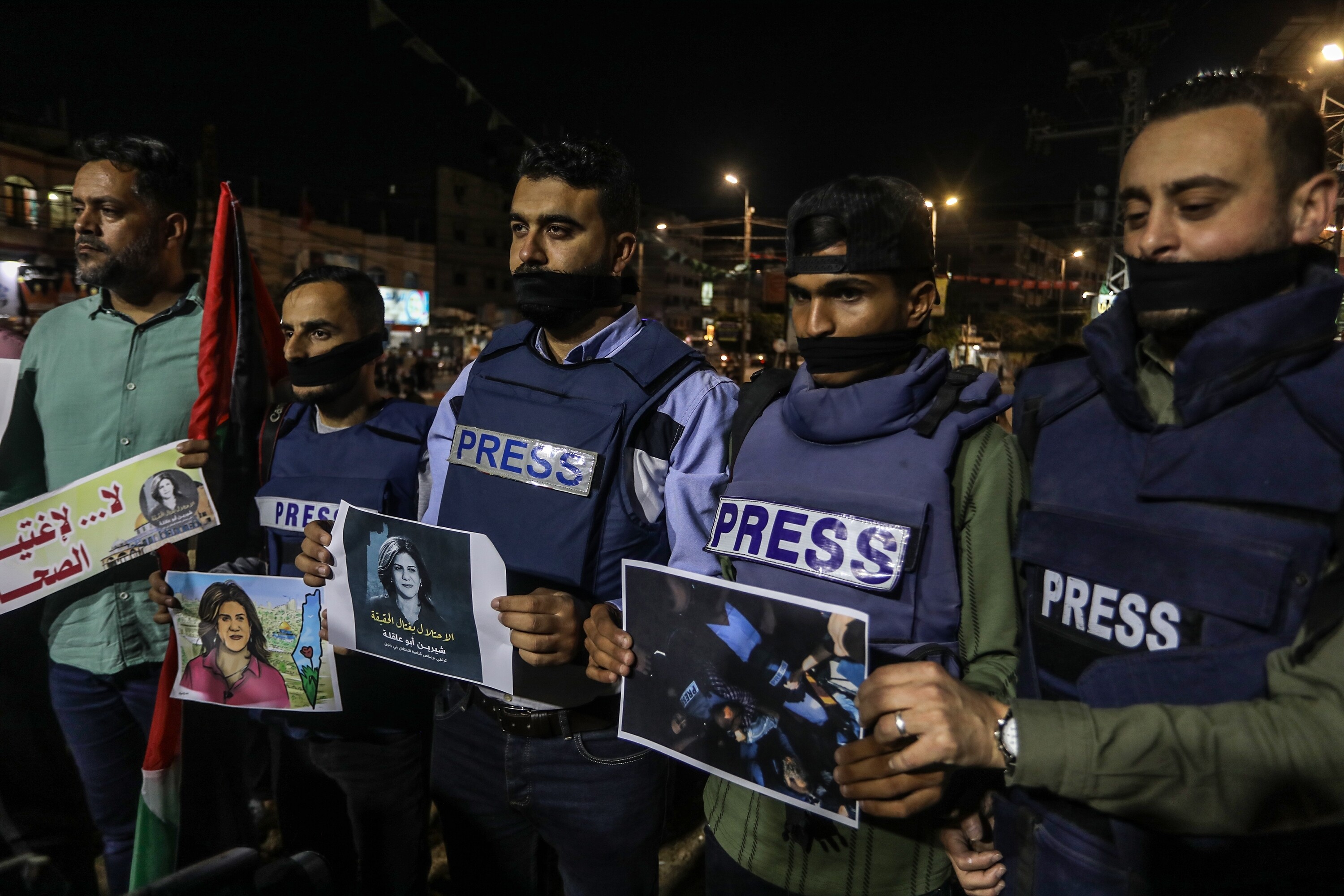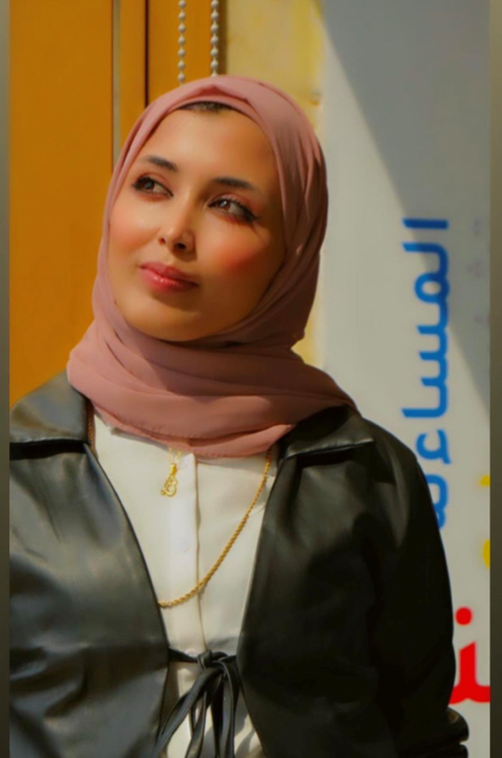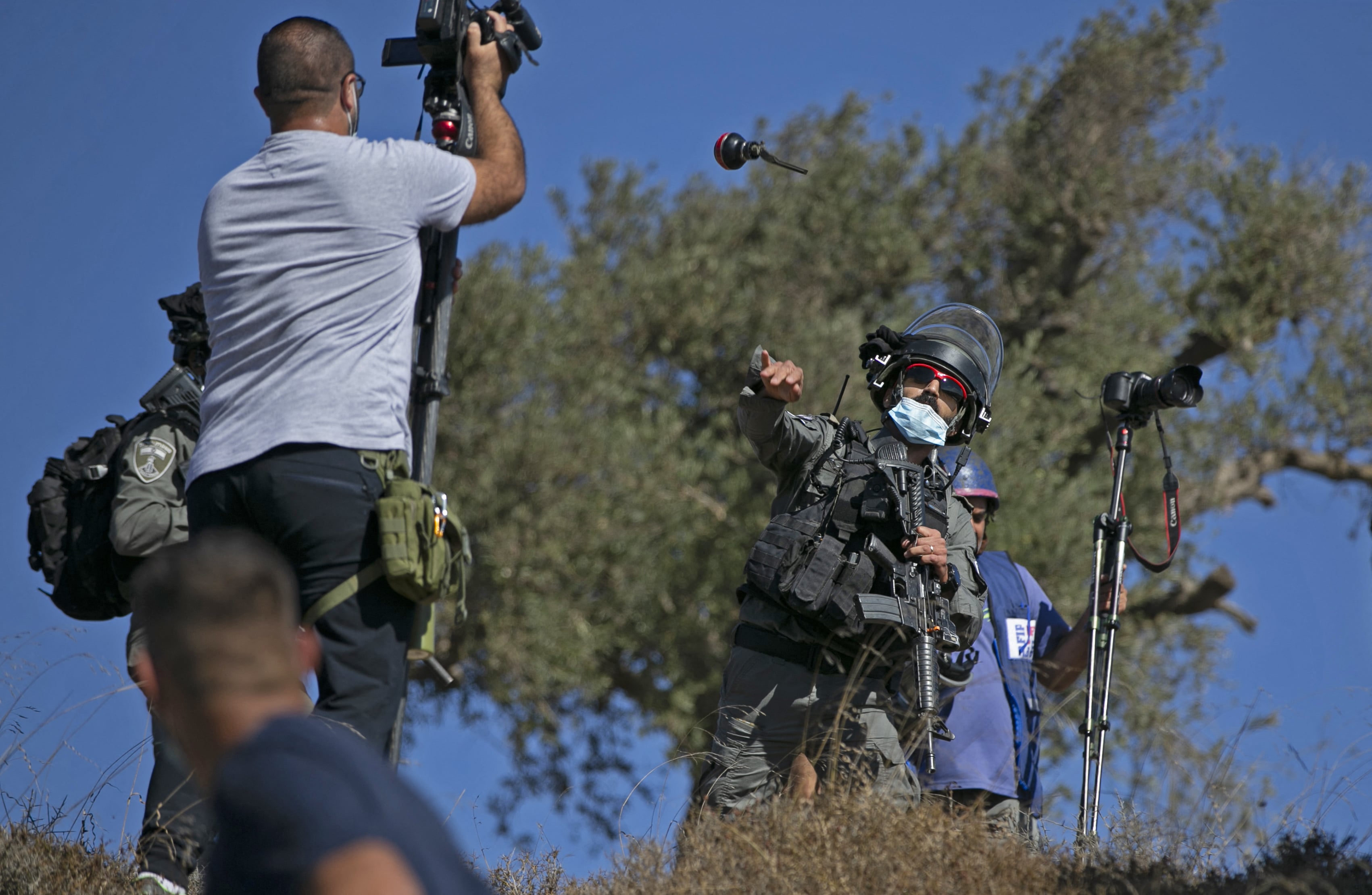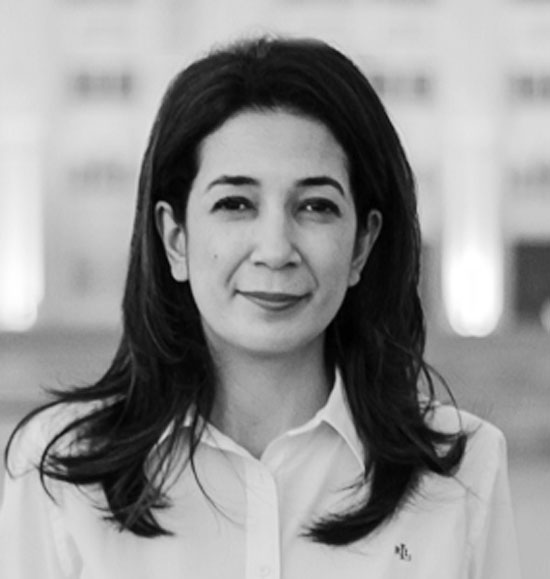Palestinian journalists in the West Bank face extreme physical danger, psychological trauma, and systemic targeting under Israeli occupation, yet continue to report with resilience, amplifying the voices of their people.
The work of Palestinian journalists has become increasingly difficult over the past couple of years. “We realised that, as Palestinian journalists, we are directly targeted because we convey a message which challenges the stereotypes perpetuated by the Israeli media,” says Hafez Abu Sabra to Al Jazeera Journalism Review.
When AJR met Hafez Abu Sabra in Nablus last month, he had his two young daughters with him. We were sitting in a garden in the middle of the city, the tall trees offering shade from the summer heat. It could have seemed like a peaceful space, briefly removed from the brutal realities of the Israeli occupation.
But Nablus has been the site of frequent raids in recent years, and the occupation forces have installed iron gates at all ten entrances to the city. These can close without warning, at any time of day. This directly impacts Hafez’s work; he travels frequently. This week marks two years since the Israeli occupation launched its genocidal onslaught in Gaza, a period that has also seen intensified violence across the West Bank.
Many Palestinian journalists continue their work despite the risks. For Hafez, they are not simply media professionals. “They are the voice of our people,” he says. “Their work is so powerful that today, the images of Palestinian journalists are awakening the world. They’ve played a key role in shifting international opinion in support of the Palestinian people.”
Hafez is the Palestine correspondent for the Jordanian channel Roya News, covering the northern West Bank, an area subjected to severe violence in recent years. More than 40,000 Palestinians have been forcibly displaced from Jenin, Tulkarem, Nur Shams, and El Far’a refugee camps.
The Killing of Shireen Abu Akleh Changed Everything

According to Hafez, being a journalist in the West Bank became even more dangerous after the assassination of renowned Al Jazeera correspondent Shireen Abu Akleh in May 2022.
She was a friend and colleague; he had seen her the night before she was killed. Her death deeply affected him and marked a turning point for Palestinian journalists.
We realised that, as Palestinian journalists, we are directly targeted because we convey a message that challenges the stereotypes perpetuated by Israeli media.
Hafez Abu Sabra
Israeli and Western outlets often portray Palestinians in a one-dimensional way, typically as terrorists or threats. Hafez believes Palestinian journalists are working to counter that dangerous narrative.
“We present the opposite message: the message of life, the message of the Palestinian people whose voices were always silenced. With the rise of digital and social media, we can now carry their voices further than ever.”
Since October 2023, 916 new checkpoints and barriers have been erected in the West Bank. Palestinians face daily violence and endure hours-long queues. Journalists are not exempt and often face greater risks because of their work.
Because of unpredictable road closures and long delays, Hafez has set up an office in his car, where he now spends most of his time.
“I often sleep there; my office and home are in my car. I have food, clothes, a fridge, and coffee,” he said.
Journalism Under Occupation
Describing the challenges he and his colleagues face, Hafez emphasised that their greatest obstacle is living under occupation.
“The Israeli occupation doesn’t treat us according to international law; first and foremost, we are treated as Palestinians [under occupation], not as journalists.”
The Israeli Occupation Forces (IOF) routinely target journalists, opening fire on them, confiscating their equipment, and destroying press infrastructure. Since October 7, 2023, more than 270 journalists and media workers have been killed in Gaza. In the West Bank, over 140 journalists have been unlawfully detained. Many are held under administrative detention without charge, subjected to beatings, and denied medical care, effectively held as hostages in Israeli prisons.
“They [journalists] endure the same torture, beatings, starvation, and enforced disappearance as any other Palestinian hostage,” Hafez said. “It’s not just journalists; it’s all Palestinians held hostage behind those prison walls.”
He added that the suffering endured by journalists is just a small part of the broader pain experienced by Palestinians. “But journalists are targeted twice as much because they carry the voice and the message of our people.” More than 11,000 Palestinians are currently imprisoned, with reports of torture and other violations of international law.
The Mental Toll of Journalism Under Occupation
Raneen Abahra began her career as a journalist in 2022. AJR met her in central Jenin last month, where she had just completed a story about a local beekeeper.
“In my career so far, I’ve maybe covered three joyful stories. Being a journalist in Palestine is not easy,” she said.
When the IOF launched a major assault on Jenin in the summer of 2023, her most difficult period as a journalist began. She and her colleagues slept in hospitals so they could report around the clock.
“Mentally, it was exhausting. Work consumed my life; I had no social life; I wasn’t going out or hosting friends. I’d report on the martyrdom of someone, and that was my day. I kept reliving every incident. I lost all emotion. Those days were extremely hard; my mental health was in a very bad place,” she said.
In January 2025, she covered the IOF’s raids and the forced displacement of Jenin refugee camp, an area of deep cultural and emotional significance for many Palestinians.
“We didn’t just lose the camp; it’s part of our identity. We live in camps temporarily, until we return to our land in Haifa, Yafa, and Akka,” she said, referencing the towns ethnically cleansed by Zionist forces in 1948.
“Why Should I Die if People Forget Me After Two Days?”
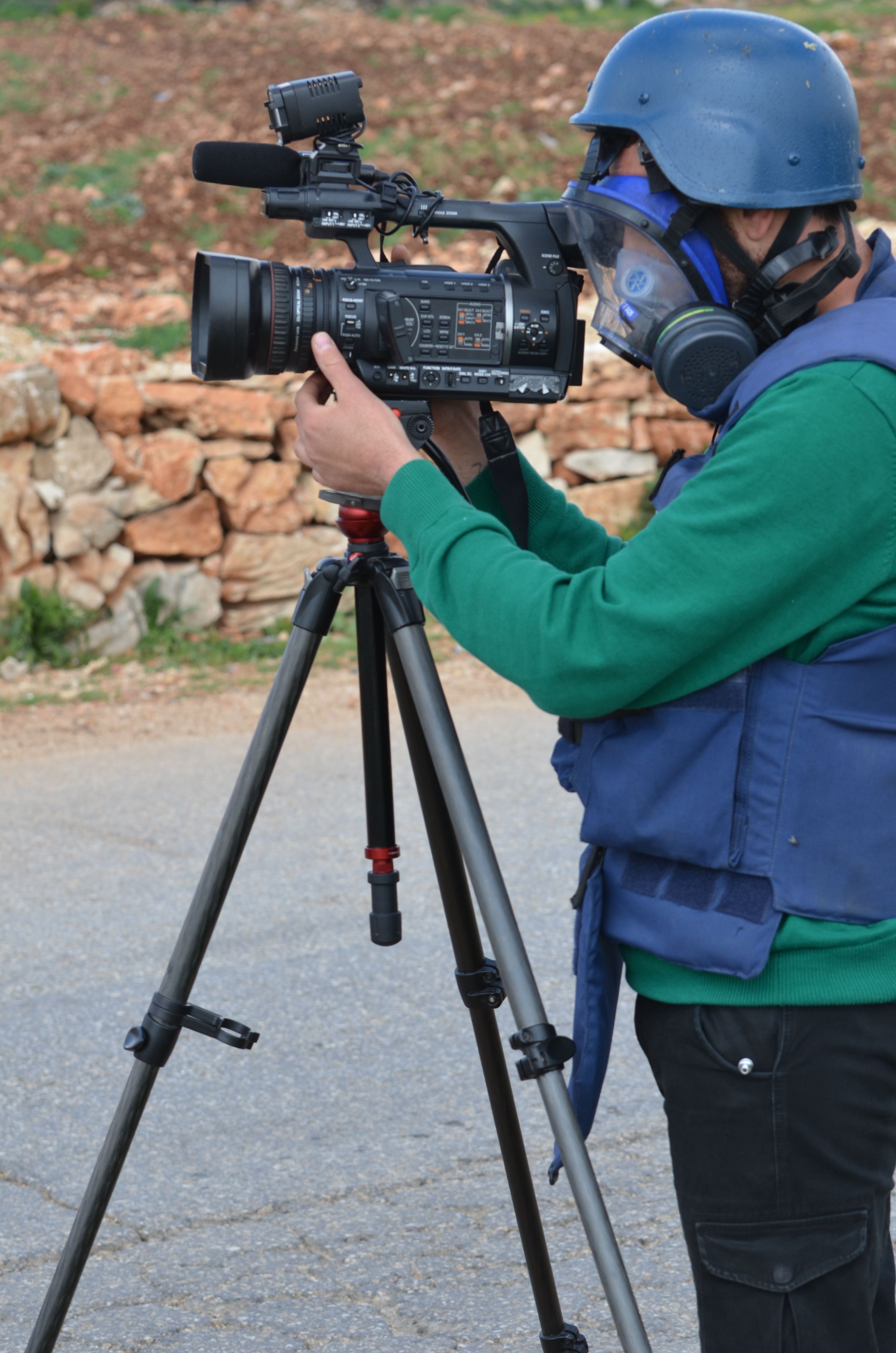
In January 2024, an Israeli drone strike killed four brothers in Jenin. Raneen was one of the first journalists on the scene, an experience she says will stay with her forever. It was not the only traumatic story she’s covered, and the cumulative effect has been profound.
“I was falling apart. My problem was that I kept reliving the stories. I couldn’t disconnect. Life began to feel trivial. I stopped valuing things. I viewed everything emotionally. That affected my relationships, with family, with friends, in my personal life,” she said.
The mental toll of covering the ongoing violence against her own people led Raneen to take a step back last year. She hasn’t quit journalism but is currently limiting her workload while pursuing a master’s degree in the field.
Being Treated Like Numbers
After the start of the genocide in Gaza, Raneen says she became painfully aware of how the global media views Palestinian journalists as numbers and that they do not consider them human.
“Palestinian journalists are among the best in the world. And yet the world treats us like we’re just statistics. After genocide in Gaza, all the killings, and the targeting of journalists, I saw that we’re not seen as human,” she said.
She kept close contact with colleagues in Gaza; she was especially close with Ismail Al Ghoul, who was killed by the IOF in July 2024. His death, along with the constant targeting of media workers, forced her to confront the core of her purpose, working in journalism.
“I started asking myself, why do we go out and do this work to get killed? For whom? The world has been hearing from us for 100 years. Why should we die? Today, I am asking myself, Why should I die if people forget me after two days?”
Raneen hopes to return to journalism once she finishes her degree next year.
“I’m proud to be Palestinian. We don’t have an airport or the sea, but I love Palestine. We don’t love Palestine for the checkpoints, but we love our Palestine.”


